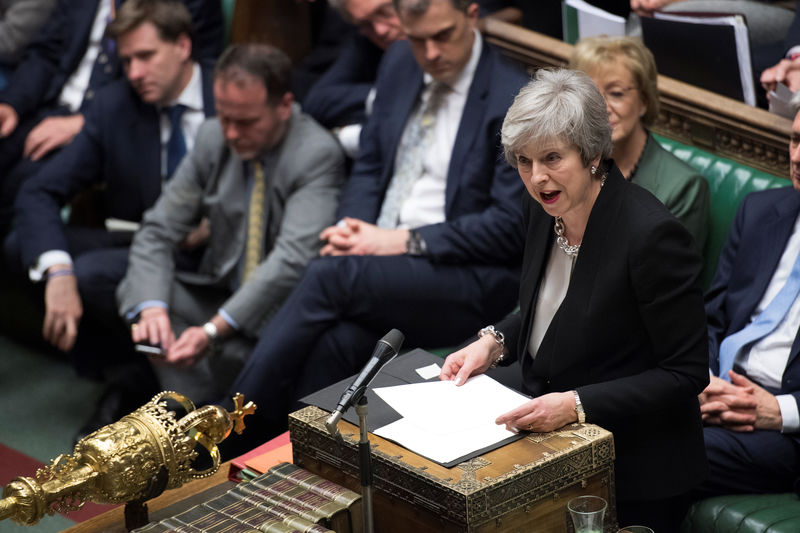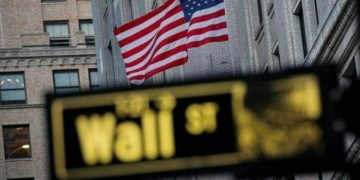 © Reuters. Prime Minister Theresa May talks about Brexit ‘plan B’ in Parliament
© Reuters. Prime Minister Theresa May talks about Brexit ‘plan B’ in ParliamentLONDON (Reuters) – British Prime Minister Theresa May was locked into a collision course with the European Union on Wednesday after lawmakers demanded she renegotiate a Brexit divorce deal that the other members of the bloc said they would not reopen.
Less than two months until the United Kingdom is due by law to leave the EU, investors and allies are trying to gauge where the Brexit crisis will ultimately end up with options including a disorderly Brexit, a delay to Brexit or no Brexit at all.
Two weeks after voting down May’s Brexit deal by the biggest margin in modern British history, parliament demanded she return to Brussels to replace the so-called Irish backstop, an insurance policy that aims to prevent the reintroduction of a hard border between Ireland and Northern Ireland.
“There is limited appetite for such a change in the EU and negotiating it will not be easy,” May told lawmakers who voted 317 votes to 301 to support the plan, which had the backing of influential Conservative lawmaker Graham Brady.
“I agree that we should not leave without a deal. However, simply opposing no deal is not enough to stop it,” said May, an initial opponent of Brexit who won the top job in the chaos following the 2016 referendum.
May said she would seek “legally binding changes” to the divorce deal which she clinched in November with the EU after two years of tortuous negotiations.
In essence, May will try to clinch a last-minute deal by using the implicit threat of a no-deal Brexit from the other 27 members of the EU whose economy is, combined, about six times the size of the United Kingdom’s.
The response from European capitals was blunt.
France, the EU’s second most powerful member, said there could be no renegotiation and demanded a “credible” British proposal. Germany has so far not given a public comment.
European Council President Donald Tusk said the divorce deal was not up for renegotiation.
Sterling, which was traded at $1.3190 before lawmakers voted, fell more than a cent and was trading at $1.3080 on Wednesday.
Many company chiefs are aghast at the Brexit crisis and say it has already damaged Britain’s reputation as Europe’s pre-eminent destination for foreign investment.
British lawmakers rejected two amendments that set out a clear path for parliament to prevent a no-deal exit if May cannot get a deal passed next month.
However, they did later approve a proposal calling on the government to stop a potentially disorderly no-deal exit, sending a signal that a majority oppose such a departure.
“Parliament at large signaled that it opposes a ‘no deal’ Brexit, but it is not ready to delay Brexit to rule out ‘no deal’ entirely,” Goldman Sachs (NYSE:) said.
“The Eurosceptic wing of the Conservative Party, by contrast, signaled that it opposes the prime minister’s Brexit deal, and it is ready to risk ‘no deal’ to re-negotiate the terms on offer.”
Goldman raised its probability of a no-deal Brexit to 15 percent from 10 percent, kept its probability of a delayed Brexit at 50 percent and revised down its probability of no Brexit to 35 percent from 40 percent.
Fusion Media or anyone involved with Fusion Media will not accept any liability for loss or damage as a result of reliance on the information including data, quotes, charts and buy/sell signals contained within this website. Please be fully informed regarding the risks and costs associated with trading the financial markets, it is one of the riskiest investment forms possible.
Source: Investing.com





























